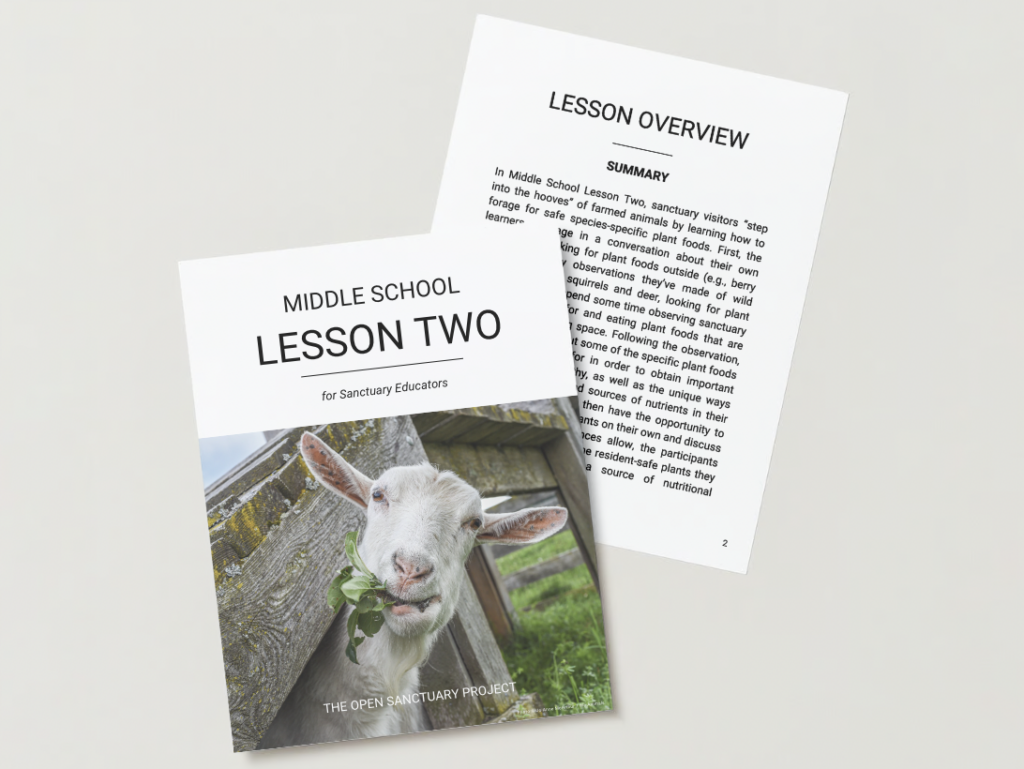
Introduction
In Middle School Lesson Two, sanctuary visitors “step into the hooves” of farmed animalsA species or specific breed of animal that is raised by humans for the use of their bodies or what comes from their bodies. by exploring some of the plant foods they like to forage for in order to obtain important nutrients and stay healthy, as well as the unique ways those animals find those foods and sources of nutrients in their living spaces. This comprehensive lesson plan includes an introduction, warm-up, two-part workshop, reflective exercises, guided discussion, optional extension activity, and series of helpful handouts. The materials in this lesson plan have been designed to support sanctuary educators and program participants in fostering a more compassionate and informed understanding of the diverse perspectives and lived experiences of farmed animals.
As with every educational program we create, please leave room to edit, modify, and adapt the activities, questions, and materials based on your sanctuary and audience’s specific needs. Built-in flexibility is an important aspect of effective educational design. Please also check out the introduction to our first early elementary-age lesson plan for important things to consider as you develop and implement any sanctuary education lesson plans at your sanctuary (e.g. positionalities, language use, modifications for people with disabilities, common core learning standards, and more).
Below, you will find a form to fill out to receive this lesson plan. This lesson plan is the second part of a multi-part sanctuary education program for middle school-age children. It can be adapted and used by sanctuary educators and representatives as a standalone lesson or as part of a long-term program with the first, third (forthcoming), and fourth (forthcoming) middle school sanctuary education lesson plans. Please stay tuned for more!
Download the Lesson Plan
Enter either your organization’s name or your name and email below to download the lesson plan!
We promise not to use your email for any marketing purposes!
Would you prefer to access this lesson plan in a different way? Contact us and let us know!
Additional Resources to Check Out
The Open Sanctuary Project’s Global Toxic Plant Database | The Open Sanctuary Project
Daily Diets, Treats, and Supplements for Farmed Animals | The Open Sanctuary Project
A Guide to Fostering Farmed Animal Agency in Sanctuary Education | The Open Sanctuary Project
Fostering Empathy Towards Farmed Animals at Your Animal Sanctuary | The Open Sanctuary Project








